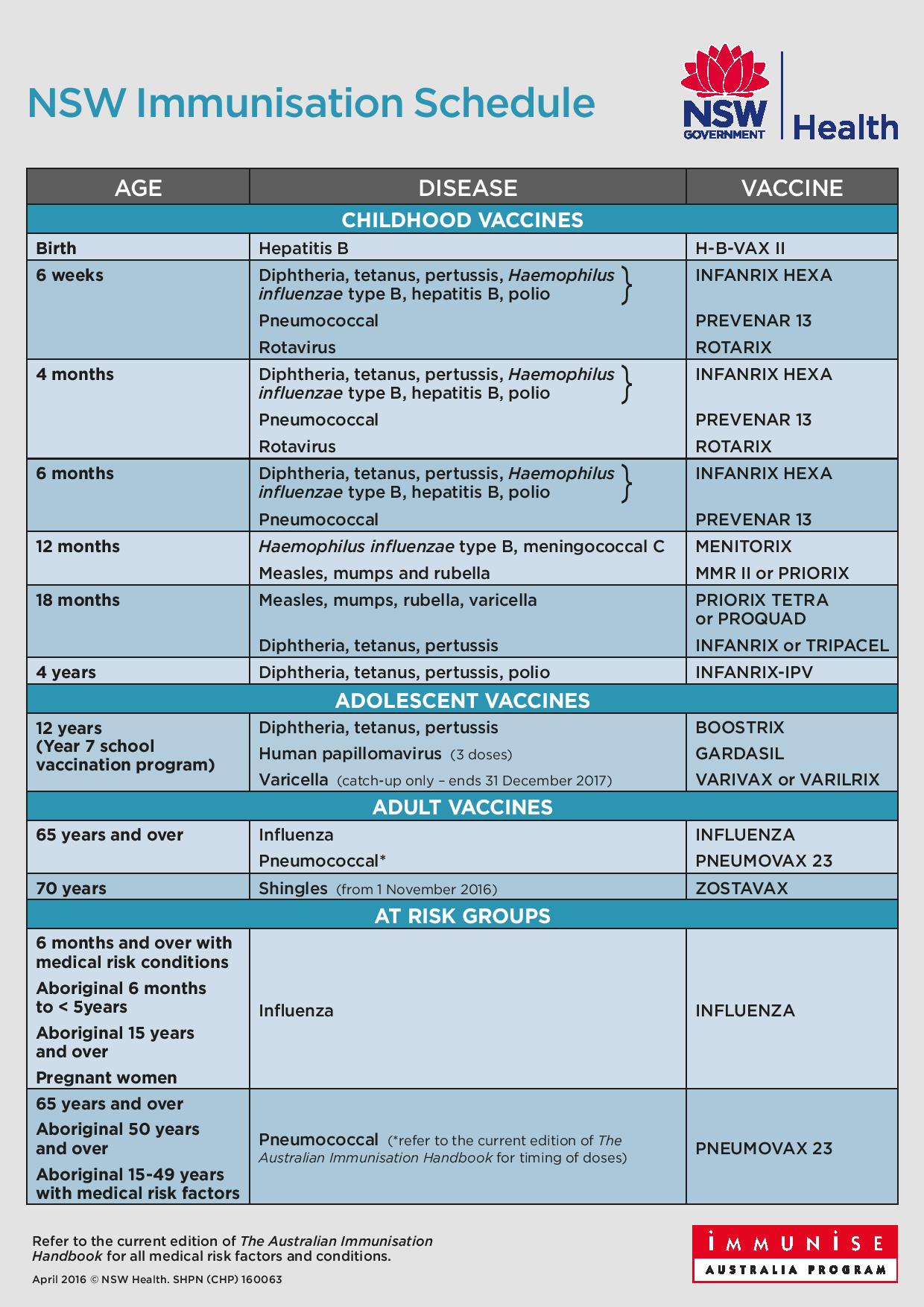Immunisation is a simple, safe and effective way of protecting children against certain diseases. The risks of these diseases are far greater than the very small risks of immunisation.
 Immunisation for your child is important not only for them but others in the community.
Immunisation for your child is important not only for them but others in the community.Immunisation protects children (and adults) against harmful infections before they come into contact with them in the community.
It uses the body’s natural defence mechanism – the immune response – to build resistance to specific infections and helps children stay healthy by preventing serious infections.
Vaccines for babies and young children are funded under the National Immunisation Program.
In Australia, babies and children are immunised against the following diseases:
- chicken pox
- diphtheria
- haemophilus influenza type B (Hib)
- hepatitis B
- measles
- meningococcal C
- mumps
- pneumococcal infection
- poliomyelitis (polio)
- rotavirus (for babies under six months)
- rubella
- tetanus
- whooping cough.

